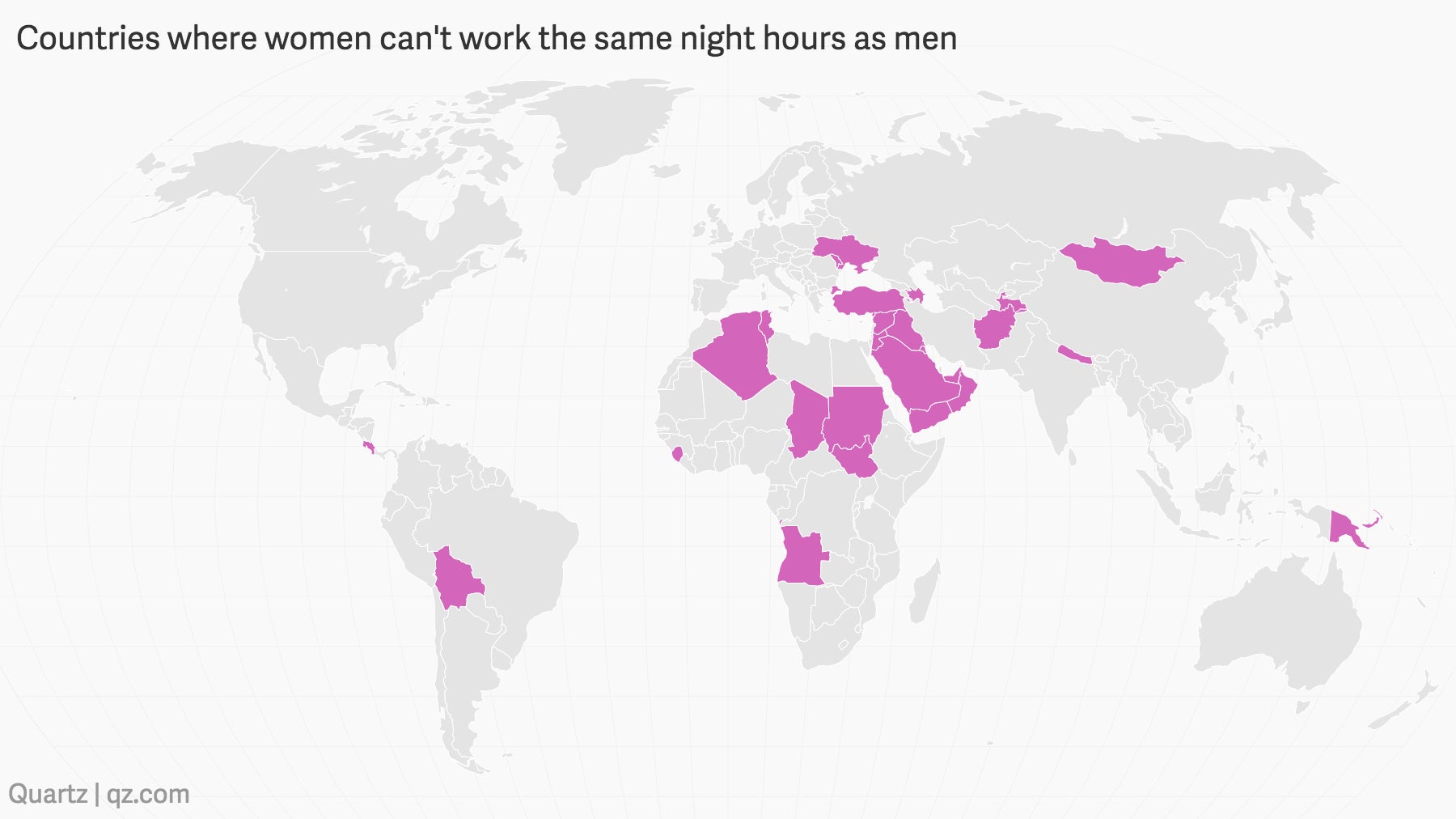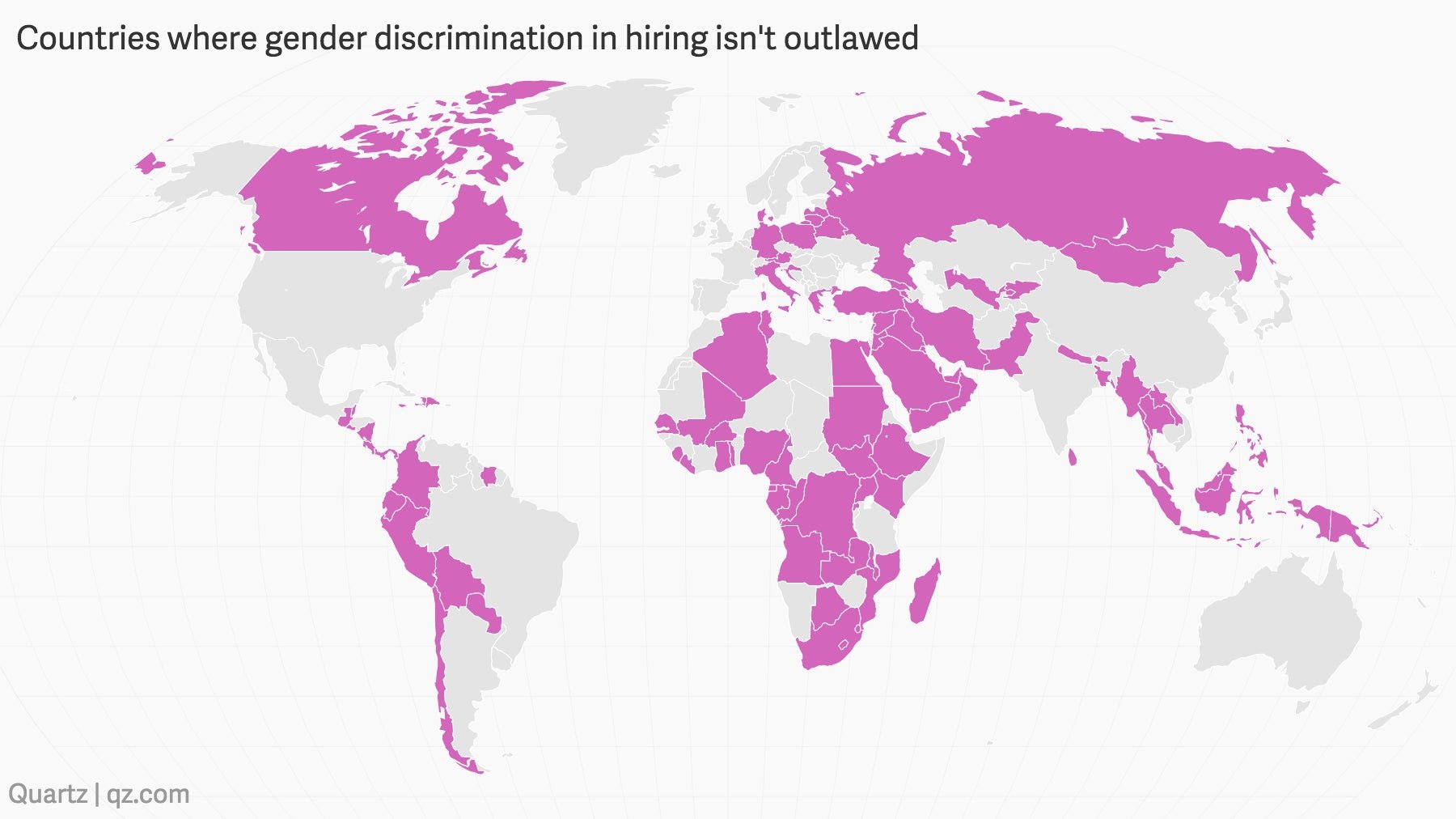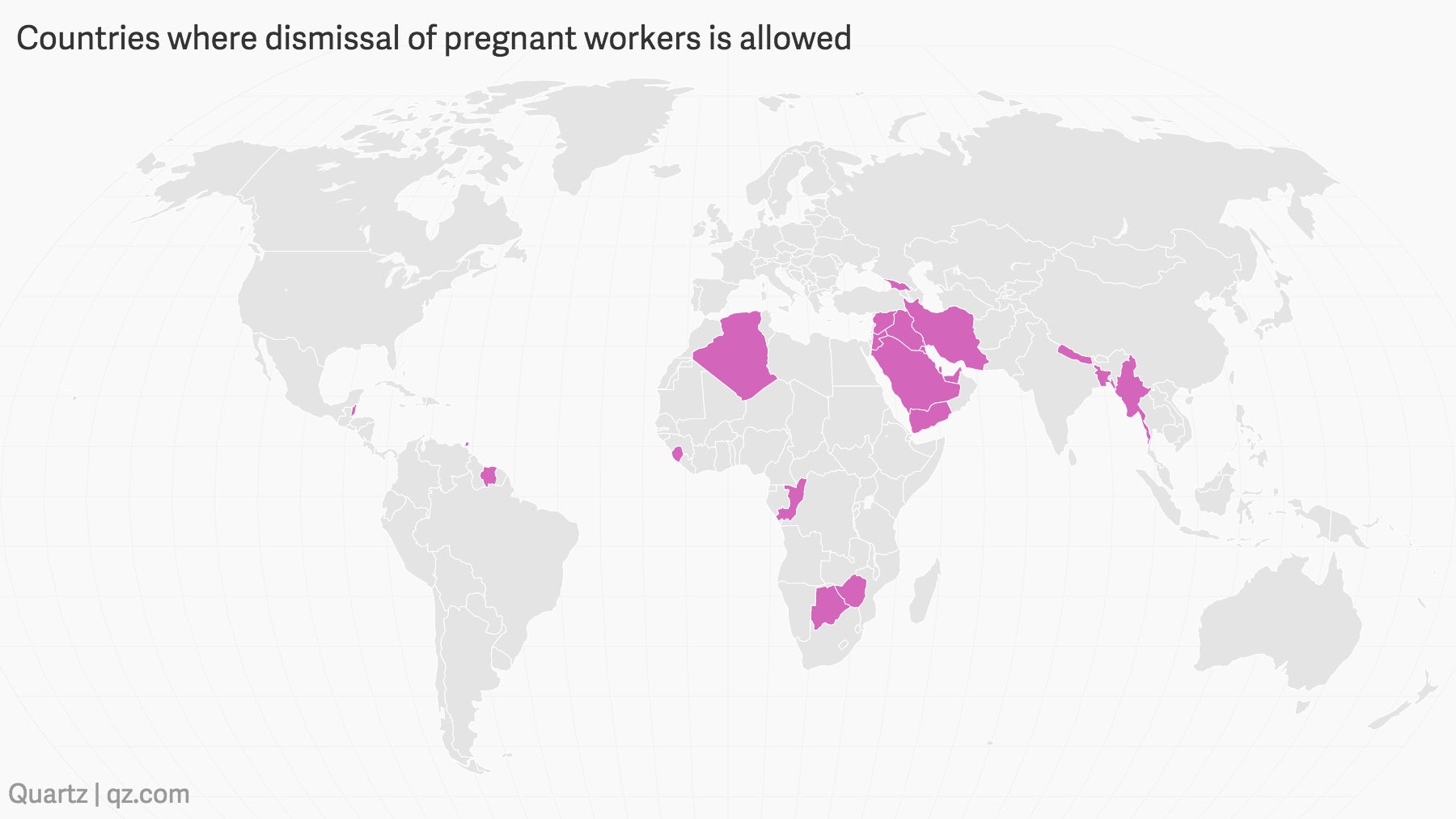The sexist laws that make work harder for women in almost every country
Twenty years ago, 189 countries signed a UN declaration pledging to promote “the advancement of women and the achievement of gender equality.” Today, a new report details how far we are from reaching that goal, particularly in the workplace.


Twenty years ago, 189 countries signed a UN declaration pledging to promote “the advancement of women and the achievement of gender equality.” Today, a new report details how far we are from reaching that goal, particularly in the workplace.
Women face legal job restrictions in at least 150 countries, according to the World Bank. These barriers to work have far-reaching consequences on not only women, but their children, communities, and national economies.
Fully 90% of countries have at least one law restricting women’s economic opportunities, the World Bank has found. Below are a few of the most egregious—mapped.
What jobs can women do?
Some 100 countries prevent women from doing certain types of jobs to prevent them from entering “unsuitable” sectors:

In Russia, for example, women are prevented from doing 456 jobs, which include being a train driver. What’s more, in 18 countries—including Cameroon and Yemen—husbands can legally prevent their wives from working at all.
Can women work at night?
Some countries impose gender-based restrictions on working hours, with women forbidden from working the same night hours as men in 29 countries:

Can an employer refuse to hire women?
More than 100 countries do not have laws that prevent gender-based discrimination in hiring practices. Predictably, there is a positive relationship between prohibitions on discrimination and women’s employment relative to men’s, the World Bank says.

Can a woman get fired for being pregnant?
The vast majority of countries have legislation in place to prevent employers from firing women simply for being pregnant, but there are 26 countries where this wasn’t the case:
